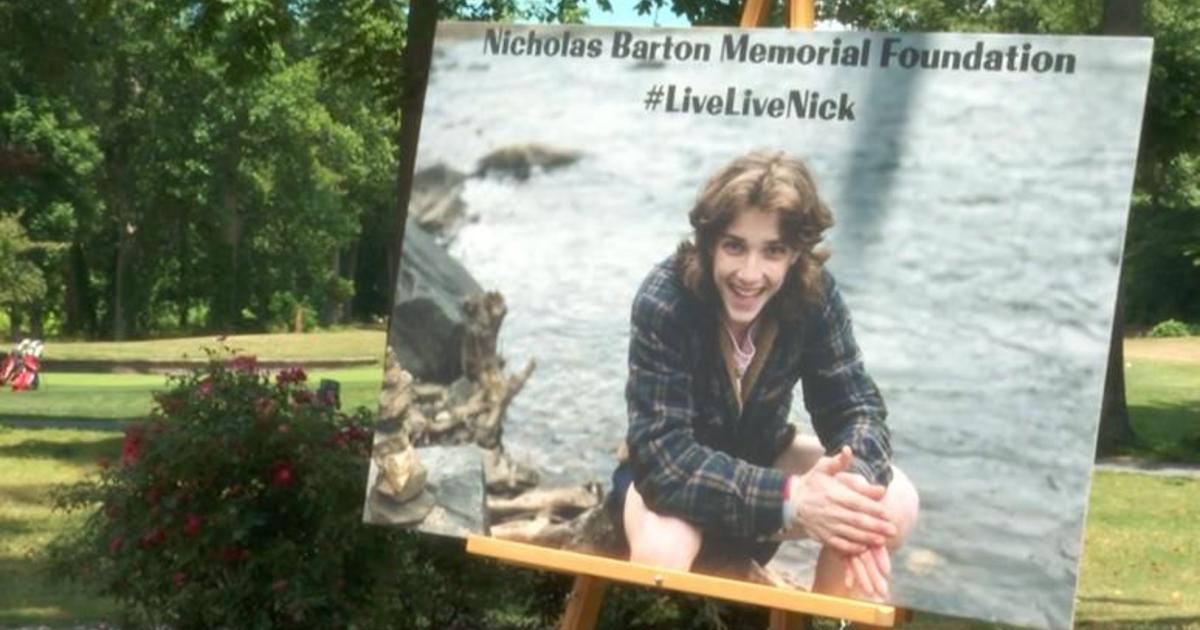Half Of Md. Residents Registered As Organ Donors
ANNAPOLIS, Md. (AP) -- Though the choice is different for each person, the decision to become an organ donor has the potential to turn a tragic situation into hope for others.
Recently, two Anne Arundel County residents provided that hope.
Terry Elvin Potts of Glen Burnie had his organs removed for donation after he was fatally injured when his car hit a utility
pole in Shady Side.
And Kara Micciche, a 17-year-old Broadneck High School student who was fatally injured July 12 while crossing Ritchie Highway, played a part in helping seven people when her organs were donated.
Micciche and Potts are two of about 40 deceased donors in the state so far this year, according to the Organ Procurement and Transplantation Network website.
They were also two of nearly 2.2 million people in the state --about 48 percent of Maryland's population -- registered to be organ donors, said Natalie Benavides, executive director of Donate Life Maryland, which runs the Maryland donor registry.
While a change in the Maryland donor registry system in 2009 makes it difficult to determine trends in the number of organ donors over the years, there were 150,000 new registrations in 2010, Benavides said.
Still, "there are a lot more people who would be willing to donate if we were able to inform them," she said.
Benavides said Donate Life Maryland's work includes outreach to state residents to raise awareness and help people overcome their concerns about organ donation.
For some Anne Arundel County residents, the decision to become an organ donor was relatively easy, inspired by the idea that, as Kerri Nusbaum of Severn put it, "You just can't take them with you."
Said Emilie Waymire of Annapolis: "If I'm dying or dead, I'm not using it. I might as well pass it on to do someone good."
But others echoed common concerns that led them to decide against registering as a donor.
Kirsten Vella-Pratt of Harwood said she worried that hospital staff might not work as hard to save her life if they saw the red heart on her driver's license that indicated she was a donor.
Instead, she said she has arranged with her husband that if she is ever beyond saving, he will give permission for her organs to be donated.
"I definitely want the best chance for my organs to be mine," Vella-Pratt said.
Jennifer Gelman, director of professional education at The Living Legacy Foundation of Maryland, which also conducts outreach throughout the state, said the organization has encountered others who share this concern. But a hospital's staff is not aware of patients' donor status while treating them, Gelman said.
She said organ procurement organizations, or OPOs, such as The Living Legacy Foundation of Maryland, are responsible for determining a person's donor status.
Michelle Donovan, head of the organ donation program at the Anne Arundel Medical Center, also stressed that the hospitals and OPOs are separate entities.
"The hospital and nursing staff really don't know" the patient's donor status, Donovan said.
Some also hesitate to register because they think they aren't eligible to become a donor because of their age or a medical
condition, such as cancer. But the need for organs often means that a wide variety of donors are accepted, Benavides said.
She added that a potential donor's organs are thoroughly tested before they are transplanted, so it's OK to sign up even if your organs are later deemed unsuitable.
"Anyone who wants to put a heart on their driver's license should," Benavides said.
Of those who register to be organ donors, only a few will die in circumstances that allow donation.
In most cases, a person becomes a donor if he or she has suffered trauma to the brain and has been declared brain dead --
meaning the brain or brain stem no longer functions -- but remains on a ventilator with hospital staff maintaining the body, using procedures such as blood transfusions. That was the case with Micciche.
It is possible to use the lungs, kidneys, heart, liver, pancreas and intestines of these patients. The other organ-donation scenario involves cardiac death, in which the family of a patient decides to end life-sustaining treatment and remove the patient from a ventilator, allowing the heart to stop. In these cases, only the liver and kidneys can be transplanted.
Organ donation involves the coordinated efforts of the hospital caring for the donor, the transplant center caring for the
recipient, and an OPO making arrangements for the transplant.
The Living Legacy Foundation of Maryland serves as the OPO for most of the state, while the Washington Regional Transplant Consortium covers Charles, Montgomery and Prince George's counties.
Other organizations are responsible for coordinating transplants of tissue and eyes, which go through a quarantine process and can be preserved much longer outside the body.
According to Gelman, most of the state hospitals notify the Living Legacy Foundation of the death of someone who could serve as a donor. The organization checks the Maryland donor registry to see if the person is listed, and sends representatives to speak with the family, either to inform them that the person was registered or to discuss the possibility of organ donation.
Before organs can be transplanted, the donor's social and medical history must be researched to determine which organs are suitable for transplant.
After searching the United Network for Organ Sharing database for potential recipients, the Living Legacy Foundation contacts the appropriate transplant center. If the donation is accepted, the foundation arranges to transport the organ.
Organs can go to one of the two transplant centers in Maryland or to another on the East Coast, depending on how long the organ can be preserved outside the body.
Last year, the 120 people who became donors in Maryland after they died provided 476 transplanted organs, according to the Organ Procurement and Transplantation Network's website. But as of July 8, there were 2,212 Maryland residents waiting for organ transplants.
Donors such as Micciche and Potts make a real difference.
"(Micciche) saved seven lives," said Donovan of Anne Arundel Medical Center.
Donovan said the hospital has retrieved organs from three donors so far this year and from five last year. In the past few years, she said, the hospital has seen more patients who at the time of their deaths are found to have registered as donors. She attributes this in part to increased public awareness.
Even if a person has not been registered as an organ donor but is eligible to be one, "it's seldom we have a family turn down organ donation," Donovan said.
Information from: The Capital of Annapolis, Md., http://www.hometownannapolis.com/
(Copyright 2011 by The Associated Press. All Rights Reserved.)



